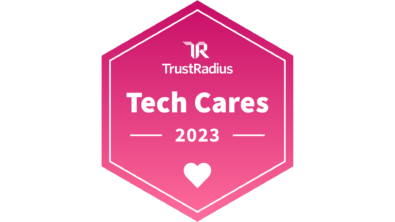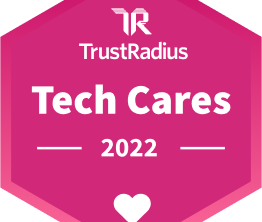Corporate
Engineers Week: Scott Wertel Interview Part 2
Yesterday we shared part 1 of an interview with engineer Scott Wertel, where Scott talked about why he became an engineer, his career highlights, how engineering has changed since he graduated and w...
Yesterday we shared part 1 of an interview with engineer Scott Wertel, where Scott talked about why he became an engineer, his career highlights, how engineering has changed since he graduated and why he blogs. Below is one of the pictures Scott sent me when I asked for a mugshot. So you can see has a good sense of humor. I’ll let you be the judge if there is any resemblance.![]()
Today we’ll share the rest of our interview with Scott, including how social media has impacted his work, why he believes the design process should be turned upside down, as well as his view on professional licensing and engineering education. See why Scott says social media “pays dividends in one’s career” and why:
“With an engineering degree, you can do almost anything, transition to almost anywhere, and solve just about any problem.”
Has social media impacted your work? If so, how?
Scott: “I enjoy writing. I don’t know if I’m any good. I don’t know if I’m interesting. All I know is that I enjoy the process of writing and would love to take that passion and turn it into a career, without giving up engineering of course. Just recently, I penned an article for Develop3D. I don’t know if it will ever make print or show up on Develop3D’s website. But I did it. Without social media, that opportunity would never have been available to me. I would never have met the right people, at the right time, with the tools available to develop the relationships needed to open that door. I have met so many people in my industry through social media that I would never have been able to meet otherwise. I keep up to date on the latest industry trends through social media. That means I am better able to predict the future and plan my organization’s growth path around ever changing technology. Some people view social media as nothing more than a distraction. If unmanaged, it can be. But when properly invested, social media can pay dividends in one’s career.”
Another topic you’ve blogged about is turning the design process upside down in regards to FEA and designers. Can you share what you mean by that?
Scott: “Technology, technology, technology. I remember reading an article, and I wish I could recall the source, that stated as the level of complexity and depth of technology increases, the higher the level of education required to run it. No longer are high school or associate degreed graduates able to enter the design space. A bachelor’s degree in engineering is becoming the minimum requirement to create drawings. Engineers are spending less time at the job site and more time behind a computer being the CAD jockey, report writer and process manager. Few others are qualified for the task. Since engineers perform analysis, and they’re at the computer already anyway, make them do both at the same time. That concept is blurring the distinction between two types of engineers: generalists and specialists. Generalists used to make great team leads and systems engineers. They had a good grasp of all disciplines and knew how the pieces fit together, but relied on the specialists to analyze the details of their specific discipline.
Since all engineers are required to do analysis now, they have to know everything about everything. It’s impossible to specialize and still be viable in an organization (not be laid off once your task is complete without skills that apply in other areas) yet it’s impossible to have a general knowledge about many things because of the lack of specific knowledge required for accurate analysis. Jack of all trades, master of none. Technology is both the cause and solution to the problem. At this point, I think the work of designers and analysts is changing to align with technology instead of technology aligning with the work of designers and analysts. That’s backwards. The whole design process needs to be turned upside down if we really want to get engineering, and the technology that supports it, back on track.”
You are a registered professional engineer. You’ve blogged about the difference between scientists and engineers and suggest more involvement from professional engineers in the product development process “by someone who is not industry exempt.” Can you explain to our readers why professional licensing is important?
There are plenty of resources besides my opinion to explain why professional licensing is important, but I can tell you one thing that you won’t hear anywhere else. Those little initials behind your name provide a sense of security. That security allows you to stand up for what you believe is right. They empower you to hold paramount those ethics and ideals in which you believe. They give you the basis, and staying power, to go head-to-head against anyone who thinks they know better and are willing to risk safety to save a buck. At the same time, those initials authorize scrutiny into your actions. They allow peer review to be your moral compass. And they prevent arrogance from taking root above the ideals in which you stand.”
You noted on your blog that raising the education requirement for engineering is a necessity.What do you think the impact would be on graduating engineers?
Scott: “A lot of people are looking at the education requirements with a very short term and narrow minded viewpoint. Most certainly, flipping a switch and requiring all graduates ‘from this date on’ to have an advanced degree will cause a two year bubble in available graduates to fill positions. It will also cause a dramatic increase in the number of students attending universities. But I think of the longer term problem. Within 5 to 10 years after the switch, having a Master’s degree will be considered standard, the new norm, the status quo. Those engineers who were “grandfathered” in without it and are looking for new opportunities will be denied those opportunities due to lack of credentials. The fact that they have been grandfathered in will have been forgotten. Now take that out to 15 or 30 years, when the grads just on the outside of that bubble entered the workforce are well into their careers. Do you think anyone is going to remember them and why they don’t have an advanced degree but someone two years younger does? No! I think not. By the time an engineer is in mid or late career, two years difference in experience doesn’t amount to much. I’d hire the guy with an advanced degree who is willing to take the same pay over the guy without one.
“I also look at the numbers, similar to what I published in that post. The cost of higher education is increasing more than inflation. Similarly, it is increasing more than starting salaries of engineers. That means engineers with advanced degrees will be starting their careers two years later in life and with more debt, but without any way to repay the extra debt. Consider the social implications of: higher average debt on the financial market, less spending on technology by those who often buy the most ‘geek’ toys, marriages occurring later in life, and child rearing starting later in life, for a significant portion of the population. (I make that general statement because an increase in education for engineers will have a ripple effect on other disciplines.)
“That’s why this issue has been discussed for so long and is so controversial. It is not a simple as saying ‘get two more years of education.’ If it were that simple, doing so would be a no-brainer. But the problem is that the education systems of many countries, even those requiring advanced degrees, do not properly prepare the engineer for the workforce. Engineers still need on-the-job training. Also, technology changes so quickly that engineers must have continuous education to keep up. Two more years of a static curriculum is not going to help solve the real-world problems of today.”
What advice do you have for students considering an engineering career?
Scott: “To be honest, I almost want to tell them DON’T. My son is showing early signs of becoming a great engineer. I’m torn between helping develop those skills or shaping them in a different direction. There is a great book The Existential Pleasures of Engineering that does an amazing job of describing why engineers like engineering. If you can handle self-motivation, self-satisfaction or self-reward, don’t mind being a social misfit, and have the patience to perform tedious repetitive work, then you will love engineering and find it a rewarding career. Most certainly there are aspects of engineering that make everyone go WOW. But most of the time, it is the engineer working diligently in the background making things for people who don’t understand anything about it or realize that it was because of an engineer that it is even possible. That’s where the self-reward and existential pleasure comes into play.
“I love engineering. I couldn’t imagine myself doing anything else. I have had the opportunity and pleasure to work on some of the greatest technologies, in the strangest environments, with the most unique people known to man. Name another career that gets to do that. I have worked with nano-sized technologies to giant space stations. The engineering workspace is vast and diverse: automotive, aerospace, defense, metallurgy, plastics, medical, electronics, composites, etc. With an engineering degree, you can do almost anything, transition to almost anywhere, and solve just about any problem. Even if you find yourself leaving the engineering field, the skills you learn and the critical thinking abilities will benefit you for a lifetime.”
Thanks Scott for taking the time to answer my questions and inspire the next generation of engineers.
Let me know if you have any other questions for Scott or any of our engineers here at Siemens.
Dora
P.S. If you’re wondering how to create your own avatar like Scott did, head over to the Simpsons Movie website.


